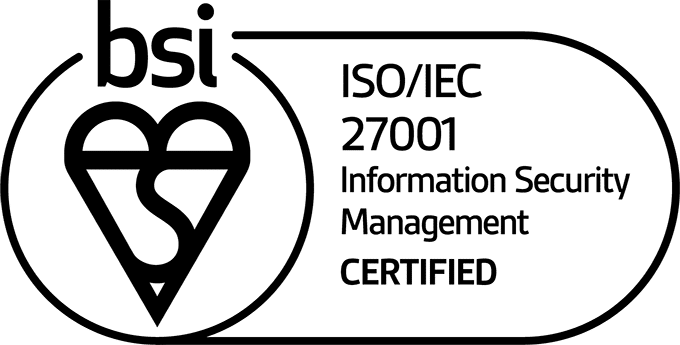Overspending can account for up to 30% of a typical telecoms budget. How can your organisation avoid the common pitfalls in mobile expense and usage management?
Telecoms overspending is a common issue that many organisations face. Hidden costs can account for a significant portion – up to 20-30% – of their total telecoms budget.
It’s essential to review the various pitfalls that can contribute to overspending if you want to achieve long-term success with mobile expense and usage management.
These can include outdated contracts, unused services, unauthorised usage and billing errors.
Identifying these issues and implementing proactive solutions allows your organisation to take control of their telecoms spending. And ensure that their budget is allocated more efficiently.
Incorrect mobile tariffs and services
Within an organisation you have a number of devices, although the devices may all be the same, the ways in which they are used is likely to differ from user to user.
If you do not have consistent and in-depth insights into what employees are really using, then the tariffs and contract terms negotiated aren’t optimised to actual usage.
This can lead to significant overspending where suppliers profit from exceeded allowances, those traveling internationally, or from items that are not included in the contract.
By keeping all users on the same tariff, it can mean that large parts of the user base are on the wrong tariffs, and this leads to the business regularly overspending.
It’s also not uncommon for the way employees to change the way they use their device during the term of the agreement.
It is therefore essential to continuously manage your services.
Negotiating a range of flexible options to suit a variety of users lets you keep your supplier’s margins, and your costs under control.
The use of pooled voice and data plans is another option. This helps to smooth out the impact of different usage profiles in the estate.
Finally, although a using one network provider simplifies administration and contracts, your organisation can miss out out on significant opportunities. Even if they have a great deal for most users.
However, by using a dual supply option for the highest, most frequent roaming users, this can reduce costs by as much as 80%, with very little resource impact on the organisation.

Revealed: How to save 30% on device management
Download your 5-step strategy to cost-effective and secure device management.
Misunderstanding and management of telecoms
Contracts, tariffs and billing
Terms and conditions are often never completely read or fully understood and with many businesses now hosting “online terms and conditions”. Often, the fine details of contracts can be missed.
Frequently, the people that do read the contracts at negotiation time, (i.e. procurement and legal), have little input into the ongoing management.
As a result, it’s common for the implications of certain clauses to be missed, or for important information not to be effectively passed on to managers and IT.
For example, nearly all of BT’s contracts are subject to online terms and conditions.
BT can change those terms by simply posting a change with 30 days’ notice. It’s your responsibility to monitor them for changes that might impact your business.
For most businesses, the complexity of telecoms billing and tariff rules mean that few can see if their bills are accurate each month. Or view the real impact of new commercial models and tariff changes.
This means that most firms incur hidden costs, and when bills are wrong, the errors are often never spotted.
A common network overcharging scheme is to charge mark-ups on default tariffs for one-off and recurring charges that weren’t specified in the original agreement.
You may find that you need a full time mobile expense management service provider to work out all the ways costs are being hidden from you.
Businesses in the UK overspend an average of £2.2 billion on telecoms annually.
Wastage and misuse
Most businesses don’t maintain an accurate inventory of their mobile services, users and devices. Leading to difficulties in identifying who is using the devices and what they are being used for.
This can lead to overspending that can go uncontrolled and unnoticed for months, or even years.
Adding to this issue, the management of mobile services can be a disconnected process across IT, Finance, HR and Procurement.
Without a co-ordinated approach to mobile management, it’s common for finance departments to automatically approve payment for services and devices. Even if the business doesn’t need or use them.
For Finance, reconciling telecoms billing often means there is little or no resource left to complete further checks. This includes analysing itemised call and service records to check that usage is being controlled.
There is a further problem in that the leaver’s process between HR and IT is often not connected. This prevents services from being removed and recovery of a device when an employee leaves, creating both major costs wastage and data security risks.
Many organisations continuously rate roaming mobile charges as one of their key areas of uncontrolled spending and it’s no surprise.
Only a small percentage of organisations have implemented processes that align the booking of international travel tickets with the process for adding international roaming tariffs and controls.
Lack of wholesale telecoms market knowledge
Most businesses achieve a temporarily good market price every couple of years. Then, no sooner than the deal is done, the supplier quickly sees their margins start to increase as the wholesale cost continues to fall, but the customer stays on the newly-agreed terms.
By the end of the contract, suppliers can be making large margins, at which time they’re ready to offer “new savings” in return for a new agreement.
Businesses that allow mobile contracts to roll over, or move onto 30-day notice periods at the end of their initial terms, are in worse trouble.
These customers only increase in profitability going forward for the supplier. All the initial sales costs, subsidies, tech funds, and commissions are typically written off over the initial term.
Did you know that many telecoms services don’t have a minimum term in the wholesale market? Think how much margin suppliers make on charging you early termination fees on disconnected mobiles.
Unless you’re investing time to understand the impact of wholesale and regulatory changes in the market, then you’re likely to be overspending in this area.
Conclusion
Managing telecoms expenses and usage is crucial for businesses to operate efficiently and effectively.
Businesses must be aware of the common pitfalls that contribute to overspending, such as:
- Roaming charges.
- Unused services.
- Not negotiating contracts regularly.
By proactively managing these areas, businesses can:
- Save money.
- Increase productivity.
- Maintain a competitive edge in their industry.
It’s important for businesses to regularly review their telecoms budget. That way, you ensure that you’re getting the most value for your money

Revealed: How to save 30% on device management
Download your 5-step strategy and learn how to:
- Stop overspending on network and device investments
- Unlock savings with smarter mobile and BYOD policies

Great emails start here
Sign up for free resources and exclusive invites
Subscribe to the Kocho mailing list if you want:
- Demos of the latest Microsoft tech
- Invites to exclusive events and webinars
- Resources that make your job easier



























Got a question? Need more information?
Our expert team is here to help.










